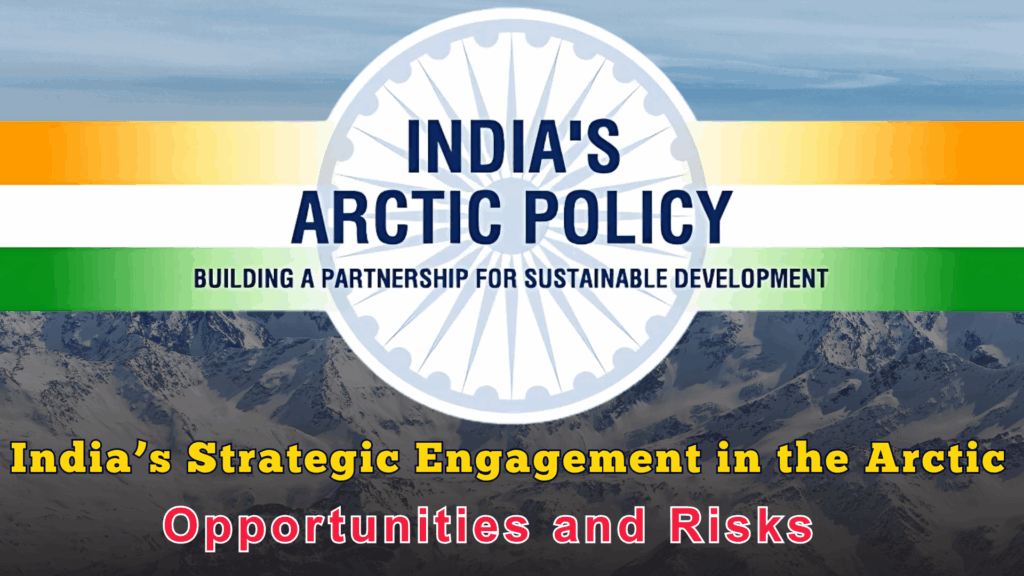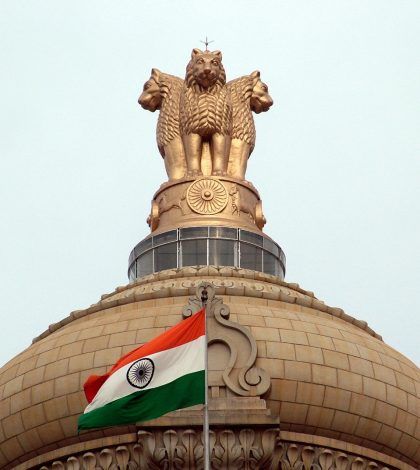India's Arctic Policy
Introduction: The Changing Face of the Arctic
The Arctic, once considered a frozen frontier, is witnessing rapid transformation due to climate change. According to NASA, Arctic sea ice is decreasing at a rate of 12.2% per decade. This has made way for emerging maritime routes like the Northern Sea Route (NSR), linking the Atlantic and Pacific Oceans along Russia’s coast. In 2024, cargo traffic through the NSR hit a record 37.9 million tonnes, offering significant trade prospects for India—but not without challenges.
Strategic and Economic Opportunities for India in the Arctic
1. Maritime Trade and Connectivity
Northern Sea Route (NSR) Advantage
NSR shortens the Europe-Asia passage by up to 40%, reducing time and shipping costs compared to the Suez Canal route.
Chennai-Vladivostok Maritime Corridor
A key Indo-Russian initiative that will connect India with the Russian Far East and Arctic economic zones.
Shipbuilding Investments
The 2025-26 Indian Budget allocates $3 billion to Arctic-capable shipbuilding under the Maritime Development Fund.
2. Energy Security
Hydrocarbon Access
Arctic reserves of oil and natural gas offer diversification of India’s energy sources.
India-Russia Collaboration
Talks during PM Modi’s 2024 Moscow visit highlight cooperation in nuclear energy and Arctic energy infrastructure.
Renewable Energy Research
Arctic policy includes research into wind and solar energy feasibility in cold regions.
3. Scientific Research and Environmental Monitoring
Himadri Research Station
India’s base in Svalbard studies climate, marine biology, and atmospheric sciences.
Monsoon Linkage Studies
Arctic warming impacts India’s monsoon patterns, with implications for agriculture and water security.
Global Collaborations
India, an observer in the Arctic Council since 2013, works closely with Arctic nations on research and governance.
4. Geopolitical and Diplomatic Influence
Strategic Alliances
Building ties with Arctic nations—USA, Russia, Japan—enhances India’s voice in global Arctic governance.
Arctic Circle India Forum 2025
Scheduled for May 3–4, 2025 in New Delhi, it will spotlight Asia’s Arctic role.
Balanced Diplomacy
India treads carefully between Western and Eastern powers, ensuring strategic autonomy in Arctic affairs.
Environmental and Geopolitical Risks for India in the Arctic
1. Environmental Concerns
Accelerated Melting and Sea Level Rise
The Arctic is warming four times faster than the rest of the planet, intensifying global climate threats.
Biodiversity Disruption
Ecosystem changes threaten species and indigenous communities’ livelihoods.
Climate Feedback Loops
Reduced albedo from melting ice accelerates warming globally.
2. Geopolitical Tensions
Territorial Disputes
Overlapping maritime claims could lead to conflict among Arctic powers.
Increased Militarization
The presence of NATO and Russian forces adds to instability.
Diplomatic Risks
India must avoid over-alignment that could harm ties with key partners.
3. Operational and Infrastructure Challenges
Harsh Navigation Conditions
Requires high investment in Arctic-grade vessels and trained crews.
Infrastructure Gaps
Lack of ports, SAR (search-and-rescue) networks, and logistical support hinders continuous operations.
High Operational Costs
Arctic expeditions involve large financial outlays and uncertain returns.
4. Legal and Regulatory Limitations
Complex International Legalities
India must navigate UNCLOS, national laws, and bilateral treaties.
Environmental Compliance
India’s Arctic operations must meet stringent environmental guidelines.
Limited Decision-Making Power
As a non-Arctic state, India has only observer status in forums like the Arctic Council.
Conclusion: Navigating a Path of Sustainable Engagement
India’s Arctic policy should balance ambition with responsibility. Strategic investment in Arctic research, energy partnerships, and diplomatic forums can strengthen India’s global positioning. Simultaneously, India must uphold environmental stewardship and adopt a calibrated, sustainable approach in navigating geopolitical intricacies.
The Arctic Circle India Forum 2025 provides a strategic platform to elevate India’s voice and align Arctic engagement with national and global goals.


